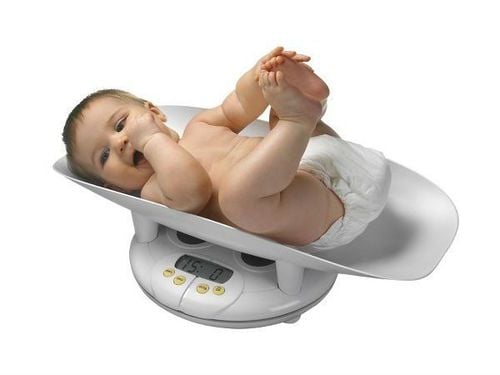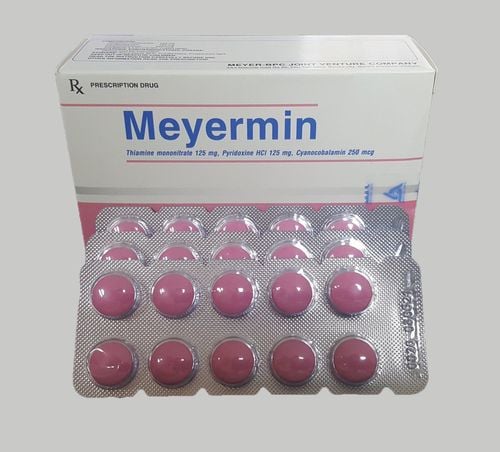This is an automatically translated article.
Taking care of your child's nutrition is an essential part of parenting. Regular nutritional check-ups for children is to create conditions for children to develop comprehensively both physically and intellectually. The following article will equip parents with knowledge about the importance and experiences of nutritional examination for children.
1. The importance of regular child nutrition examination
The first years of life are a period of rapid change and development. Child nutrition examination is the key to healthy growth of children. Therefore, the most important thing is to make sure to visit your baby's nutritionist regularly.
Because a child's nutritional needs change every year as he or she gets older, it's a good idea to see a nutritionist for children of all ages, from infants to teenagers. Child nutrition screening usually begins a few days after birth and continues until the child is 18 years old. Children get more frequent health checkups when they are young, especially at birth, and tend to be less frequent as they get older.
Parents should pay attention at times like 6, 9, 12, 15, 18, 24 months old to go to a nutritionist for their baby. Because after 6 months of age, babies start to eat solid foods, so there will be nutritional problems. Going to a nutritionist is to detect existing problems that may disrupt your baby's development. When the child is 24 months old or older, parents should re-examine their child's nutrition 1 to 2 times a year.
The importance of child nutrition examination is as follows:
1.1 Immunizations
Children get scheduled immunizations at the right time to help prevent illness. Nutrition is also a key element of preventive care, along with hearing and vision screening. Immunizations and nutritional care help children grow into healthy adults.

Khám dinh dưỡng đánh giá tăng trưởng và phát triển của bé
1.2 Evaluation of growth and development
Check if the child is meeting the current nutritional needs Check if the child is in good physical health Detect nutritional deficiencies, excess or lack of nutrients early. From there, there is a way to limit or design appropriate nutritional supplements. Help parents create a healthy eating plan for their kids. Find out solutions to improve the health status of children who are stunted, underweight, have poor resistance, overweight, and obese, etc. Limit nutrition-related diseases such as digestive disorders, malabsorption syndromes, diarrhea, constipation, anorexia. Provide knowledge and develop awareness about children's long-term health... Check for early warning signs of health problems to address at an early stage. Regular visits to your baby's nutritionist make it easy to track and gauge how your child has grown since the last visit, and whether or not the developmental milestones set by each stage have been achieved.
1.3 Answering questions
Regular child nutrition visits make it possible for parents to ask any questions about their child's development and raise any concerns about their child's health. Parents should prepare a list of questions and topics of interest in advance, this will help make the most of time and avoid missing questions. In the process of raising children, many more concerns may arise and parents can be answered at the next nutritional check-up. Some of the topics that parents often focus on include a child's development, nutritional needs, diet, sleep, exercise, and behavior.
However, whether or not they have a schedule or have an appointment for a child nutrition examination in advance, parents should also visit a doctor if they notice any problems in their child's eating habits, suspect that the child has a nutritional deficiency. nutrition or weight-related problems. A dietitian will watch for signs of weight-related problems, such as:
Malnutrition: a child is malnourished if the nutritional needs are not provided for growth. develop. Malnutrition can be caused by lack of food or by not eating enough nutritious, rich foods or by eating too many foods that are unhealthy and offer no nutritional value. Overweight or obese: A child is overweight or obese if his or her weight exceeds the normal range for children of the same age. Baby is feeding less or eating less Sudden weight loss or gain Not growing at the normal expected rate (both in height and weight), given the child's age. Gastrointestinal disease or malabsorption syndrome Behavioral changes, such as sluggishness or irritability Skin color changes such as pale, pale skin; hair loss Abnormal or disproportionate body mass index Recurrent infections, or minor illnesses

Cha mẹ cần đưa bé đi khám nếu nghi ngờ bé mắc bệnh tiêu hóa hoặc hội chứng kém hấp thu
2. Experience in nutrition examination for babies
Child nutrition examination is a process of health monitoring from birth to adulthood. Therefore, parents need to know the experience of nutritional examination for children.
Dietitians usually begin a nutritional health check by conducting a general physical examination, which includes:
Checking the child's weight, height and body mass index Blood test blood pressure, done starting at age 3 Vision test Eye exam Dental exam Listen to heart and lungs Review standard immunization schedule A physical exam will help your doctor detect any physical problems or any growth deficit. Then, the doctor will ask parents about the child's eating habits to assess whether the child is getting enough and balanced nutrients. Children's nutritional needs tend to change as they get older, which explains the need for annual nutritional health checks. For example, by age 3, a child's diet should consist mainly of solid foods. By age 4 and 5, children should begin to have a well-balanced diet that includes three meals a day as well as two nutritious snacks. As children become more active, they will also have greater nutritional needs. In general, child nutrition experts recommend that parents feed their children a balanced amount of fruits and vegetables, healthy sources of protein, and foods rich in fiber. Food should be grilled or steamed rather than fried. Parents will also be given guidance on what foods to limit, such as fast food, junk food, soft drinks and sugary drinks.
If parents have some problems with feeding, such as when the child is picky or anorexic, the dietitian can offer some advice on how to encourage the child to eat more and should Feed your child what's best to make sure he or she gets all of the nutritional needs for growth.
The doctor will provide instruction on important topics such as disease prevention, diet, physical activity, social skills and how to handle emergencies or sudden changes in health of children.
If there are any nutritional deficiencies, the dietitian may prescribe some nutritional supplements, such as vitamins and minerals. If anything unusual is found, your doctor may order some additional tests.
Parents will have the opportunity to ask questions and talk directly with the doctor. A doctor is someone who has the knowledge and experience to manage children's health, but parents who are directly raising children should have the right knowledge and experience.
With many years of experience in examining and treating diseases in children, now the Pediatrics Department at Vinmec International General Hospital has become one of the major health care centers, capable of examining , screening and treatment of many specialized diseases in children. Therefore, parents can bring their children to Vinmec International General Hospital for examination and receive support and advice from qualified doctors.
For children to be healthy and develop well, it is necessary to have a nutritious diet in terms of quantity and quality balance. If children are not provided with adequate and balanced nutrients, it will lead to diseases of excess or lack of nutrients, which adversely affect the comprehensive development of children in terms of physical, mental and motor skills.
Children who do not eat properly are at risk of micro-mineral deficiency causing anorexia, growth retardation, malabsorption,... If they notice the above signs, parents should supplement their children with products. The supplement contains lysine, essential micro-minerals and vitamins such as zinc, chromium, selenium, and B vitamins to help fully meet the nutritional needs of children. At the same time, these essential vitamins also support digestion, enhance nutrient absorption, help improve anorexia, and help children eat well.
Parents can learn more:
Signs of zinc deficiency in children
Micronutrient deficiency and failure to gain weight in children
Please regularly visit Vinmec.com website and update useful information to take care of your child. Take care of the baby and the whole family.













